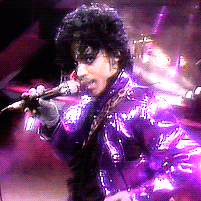f4p wrote:after a title with an incredible 94.6% championship odds at the start of the playoffs, [Kareem] then hit a lull where he had 36%, 29%, and 69% chances to win and didn't (average champion is at 34%). that 69% chance in 1974 is the 3rd worst non-title, trailing only the 1958 celtics (70.7%) and, of all teams, the 1976 warriors (72.9%). then he missed the playoffs altogether for the next 2 years. in a decade with massive expansion (more than jordan), even more dilution to the ABA, where his biggest competitor in walton was ruined by injuries, and where great teams were rare in the 2nd half of the decade, we get one dominant title, a series of disappointments, and missed playoffs.
he lost 2 series in the 70's as a +4 SRS favorite (1973 warriors, 1974 boston). when comparing him to someone like jordan with no losses as a favorite at all, this is a huge deal. and he tacked on another +4 loss to 1986 houston. kareem was losing +4's at over twice the rate of the other top 30-40 guys i looked at (15.8% to 7.2%, with 7.2% showing you how rare it is). and he even has a near miss with a +3.5 loss.
the standard for jordan seems to be that if he has the most dominant 6 season stretch in nba history, it's still not enough. what even would be enough if the best stretch of results ever isn't enough? it's not enough because his teammates are too good, the odds too stacked in his favor, too much expansion. but the world was kareem's oyster in the 70's. he had all those things and more at various times in the 70's. were all his rosters contender worthy? no. but you can't lose a 69% title and miss the playoffs twice as by far the best player in the league and tell me you maxed out. and early in the 80's, we already have him getting outplayed by his counterpart moses malone and losing to a 40-42 team as a defending champion. these things are simply not on the resume of jordan.
yes, kareem was amazing right from the start. and probably lost out on a season or two of being very good by not getting to leave college early. and put up massive numbers. and has a few years where he dragged a team as far as possible, even if he didn't win. and has scoring numbers and efficiency numbers, even in the playoffs, that are amazing. i'm still voting for him #3 after all. he was very good. and he has lots of championships.
but of course part of kareem's 6 titles are that he got 2 as very clearly not the best player on his team, barely having above average stats (though i think others have indicated possibly good impact numbers). playing next to a top 10 player at his peak. kareem's age 36-38 seasons are 1984-1986, next to essentially peak magic johnson. if MJ came back to play his age 36/37/38 seasons and told the bulls to trade him to the lakers for kobe so he could play with peak shaq (or maybe slightly below peak shaq to make it more fair), he's probably climbing up to 7/8/9 titles. but he retired on top instead of dragging it out.
is it really just all about continually adding seasons together? picking the guy who was most willing to play it out to the very end just to add that last little bit of career value? in the last project, jordan finished #2 and kareem #3 and my notes indicate that neither of them have played any NBA games since then. the "portability/scalability" fever that gripped this place during the peaks project last year seems to have thankfully broken, but now we seem to have a longevity fetish building. is the lebron case on longevity bringing other longevity cases to the fore now?
As someone voting Kareem ahead of Jordan, I think a lot of the Jordan arguments ahead of him make a fair amount of sense and I am surprised to see it be so mainstream among this panel for Kareem to have the edge.
To your hypothetical, and with the acknowledgment that there is an extent to which I think this view should be more niche than it is: yes, that would reflect better for Jordan in my eyes, even if the weight given would be tempered. The hypothetical “Lakers Jordan” would be a more valuable player. The literal sense is obvious, in that playing is (generally) adding value. Winning titles is also adding value, even if it is as a sidekick and thus lesser value. But that is where I think your hypothetical breaks a bit. Is that Jordan to you? Knowing everything we know about him, is he handling the shift into a secondary role next to Shaq? I kind-of doubt it, but if he had, that would increase my valuation of him, yes.
I understand why people go with the “no worlds left to conquer” angle. But I also do not think it is especially accurate. I mean, for one, he did not stay retired. For another, he announced his retirement in the middle of January 1999. This was not some planned result after that sixth title. There was an article on Grantland or maybe The Ringer or something like that… cannot find it now, but maybe someone knows my point of reference here. Anyway, it went into detail about how Jordan was to some extent looking for a team in the offseason, but for various reasons, nothing materialised or made much sense. So he retired.
He was also tired and drained; not disputing that. And he has the right to be. But that is Jordan, who constantly maintains a psychotic and evidently exhausting mindset in all levels of competition. Is Kobe retiring after 2010 if he had won in 2008? Nah. Would Lebron have retired by now? Well, maybe, but I think Lebron has always been good at setting new goals for himself. He said he wanted to play at the same time as his kids a ways back, but I think even with six titles, the scoring record would be an attractive accolade to him, and once you have the scoring record, hey, just need to tough it out for another year and then maybe your kid can be drafted somewhere. Kareem did not. Duncan might have, but he seemed to be more a case of, “I cannot provide enough value to my team for another season of wear to be worth it.” We can understand Jordan’s decision without celebrating it.
This is not a new narrative either. I think after 2016, Bill Simmons — only mentioned because of the cultural cachet he carries — wrote about how that retirement may ultimately let someone (Lebron) dethrone him. And look, I have been very clear that the extra years are ultimately irrelevant to me with Lebron versus Jordan. And Russell played roughly the same amount of time so it is pretty irrelevant there.
It is relevant for Kareem. I think prime Kareem can stand with Jordan, but if you asked me whether I would rather have ~930 games of Jordan (his entire Bulls regular season tenure) or Kareem (his entire regular season career 1970-81), I am taking Jordan. Add a year. Big year because Kareem adds another title. Still, Jordan has an extra seventy playoff games and an extra two postseasons (albeit with conference seeding luck not extended to 1975/76 Kareem), and I would continue to take Jordan. 1983? Kareem adds another Finals run. Getting closer now, but maybe we still take Jordan. 1984 is a first-team all-NBA season nearly ending in a title. 1985 he wins Finals MVP. 1986 is another first-team all-NBA spot (almost certain to remain the oldest ever for at least another decade). You can talk about the disappointments in some of these seasons, but they are not negative value seasons. Again, I recognise a lot of people look at primes only, and there, sure, Jordan will probably never fall behind Kareem even in this community. But those extra superstar years add up.
Idk, in some sense, yeah, it feels weird to say that Kareem was the best player in the world for longer than Jordan was, yet he seemed to disappoint in a way Jordan never really did. However, there is that Duncan idea where it also feels weird to punish guys for being so incredible that they exaggerate their team’s real playoff quality. I saw 1974 Cowens brought up. He outscored Kareem in Game 7, yes. Great player, great game. Would we say the same thing about 2016 Lebron if Kyrie had missed that shot, or if Steph or Klay had managed to connect on some garbage look at the end of the game? Outscored by Draymond, here dies his legacy.
…
2016 is what best kept him competitive in this race despite the two title deficit, so maybe that is consistent in a way. “Kareem needed 1974 to be above Jordan.” I see the angle. To me though, the Celtics had the better team. They were better than the version of themselves which won 68 games the year before, and the Bucks were not the version of themselves that established a 4 SRS advantage.
For me the bad loss is 1973. Decent Warriors squad with Barry back, but no real way to excuse it. Like with how 2011 affected Lebron, I think that helped develop Kareem into the nearly unstoppable half-court scorer he would become, but it is a clear failure. And when someone is essentially looking for the fewest number of failures, I recognise Kareem is going to be in a tougher spot. But for myself, I have always believed players can make up for it, and by sometime in that 1985-87 range, I personally think he had… even if I am surprised by the extent to which people here have slowly come to agree.


























